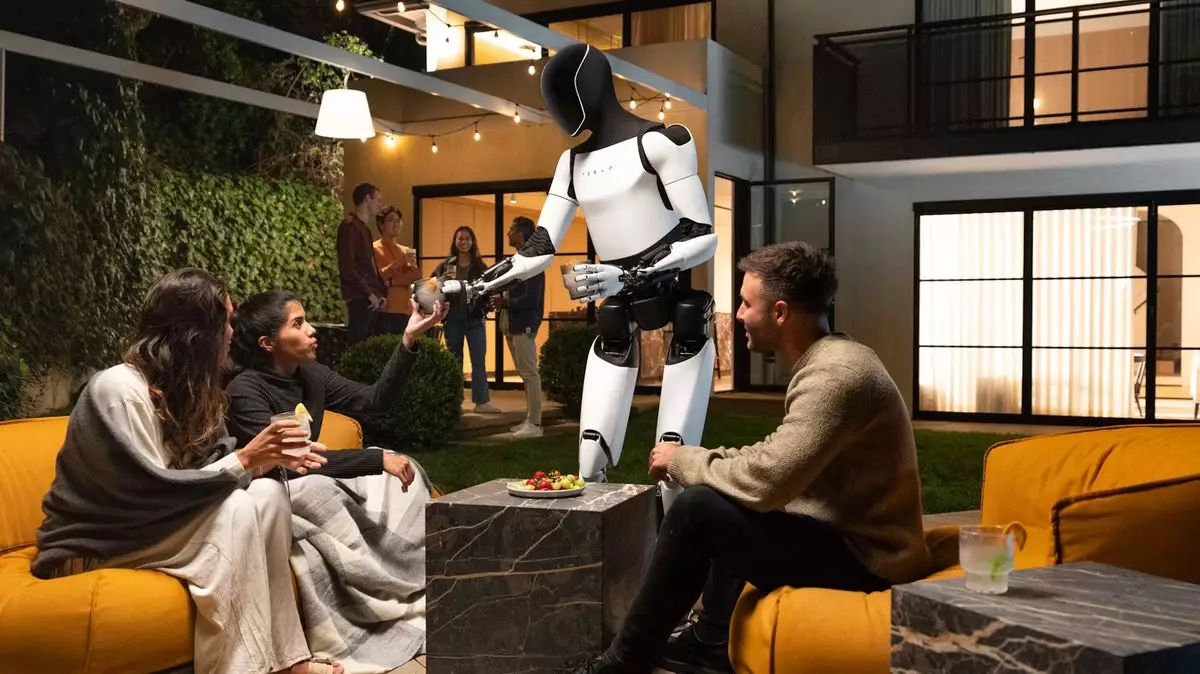In recent years, the world has witnessed remarkable advancements in artificial intelligence and robotics. Among the frontrunners in this field is Elon Musk, the CEO of Tesla and SpaceX, who continues to generate excitement and skepticism around his ambitious projects. Musk’s latest venture, the Optimus humanoid robot, was recently showcased at Tesla’s We, Robot event, reigniting discussions about the potential role of robots in our daily lives. While he enthusiastically presented the prototype, suggesting it could perform various tasks from walking dogs to serving drinks, the context and execution of the presentation raise questions about the underlying reality of these claims.
Back in 2021, Musk’s initial introduction to the humanoid robot was nothing more than a person in a costume, which set a somewhat humorous tone. Fast forward to 2022, and we received a glimpse of a genuine prototype capable of limited movement. The excitement was palpable, primarily due to the novelty of it walking slowly around the stage without losing balance. This slower, staged demonstration might have charmed onlookers, but it hardly represented the autonomous capabilities Musk suggested. During the recent Tesla event, the reveal of multiple robots gave way to grandiose promises, prompting both amazement and skepticism among an audience eager for the next leap in technology.
Musk painted a vivid picture of Optimus as an all-in-one household solution: a caregiver, a companion, and a diligent helper for everyday chores. Such vision was enticing—who wouldn’t want a robot that could multitask around the house? However, critical voices within the tech community raised alarms during and after the event, especially surrounding the feasibility of this grand narrative. Notably, Musk didn’t explicitly state that these robots would be powered by autonomous AI, which could have bolstered his case. This omission suggests either a strategic decision to downplay the current limitations or a failure to deliver on the supposed capabilities of the robots.
Moreover, there was a significant catch to the evening’s demonstrations—a robot functioning as a bartender was reportedly under the control of Tesla employees. Observations made post-event indicated that the robot’s movements were too smooth and coordinated to be autonomously operated, a factor that elicited doubt about the demo’s authenticity. The control aspect also raised questions about whether the showcased robots were merely remote-operated puppets, cleverly disguised to appear as sentient beings.
While the potential for humanoid robots to integrate into society is indeed fascinating, it is essential to temper enthusiasm with skepticism. The concept of truly autonomous robots performing complex tasks seamlessly is alluring, but predictions surrounding such advancements often remain unfulfilled. The precedent set by Musk’s previous ambitious claims, especially with Tesla’s self-driving cars, underscores this reality. Promises of fully autonomous driving have faced multiple delays, and the timeline for integrating such technology into everyday life remains uncertain.
Moreover, the introduction of the Optimus robot is not solely about its technical capabilities; it also embodies broader themes of human interaction with technology. As robots with advanced capabilities become feasible, the ethical, social, and psychological implications of their integration into our daily lives must be examined. The increased interaction between humans and robots has the potential to shift social norms, influence human behavior, and redefine companionship in profound ways.
The allure of advanced humanoid robots like Optimus serves as a catalyst for discussions surrounding the future of automation and artificial intelligence. While the tech community and the general public should remain optimistic about breakthroughs in robotics, it is crucial to approach claims with a critical mindset. Abandoning naivety in favor of nuanced understanding may yield better preparedness for the eventuality of intelligent robots in our society. Only time will tell whether the Optimus is the harbinger of a robotic revolution or just another chapter in the ongoing saga of tech hype. In this ever-evolving landscape, maintaining a healthy level of skepticism may be as essential as fostering innovation itself.

